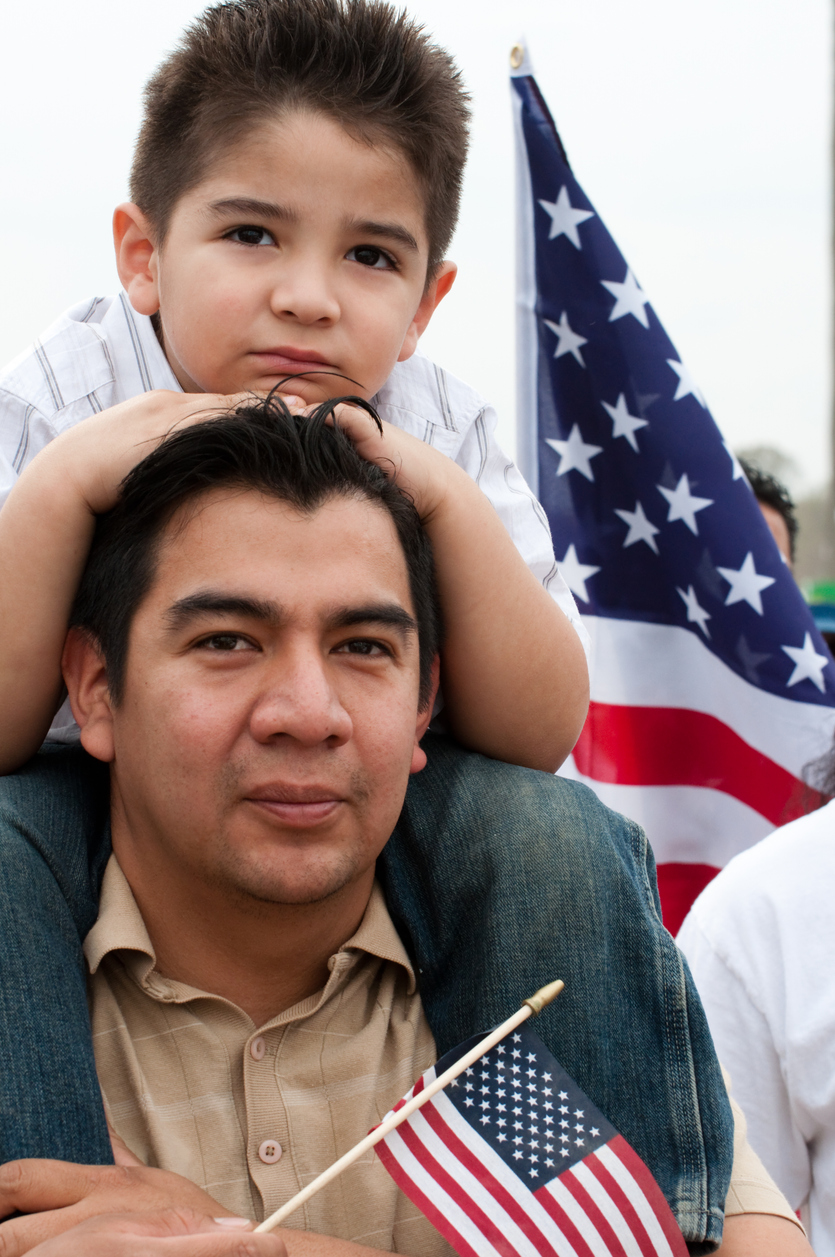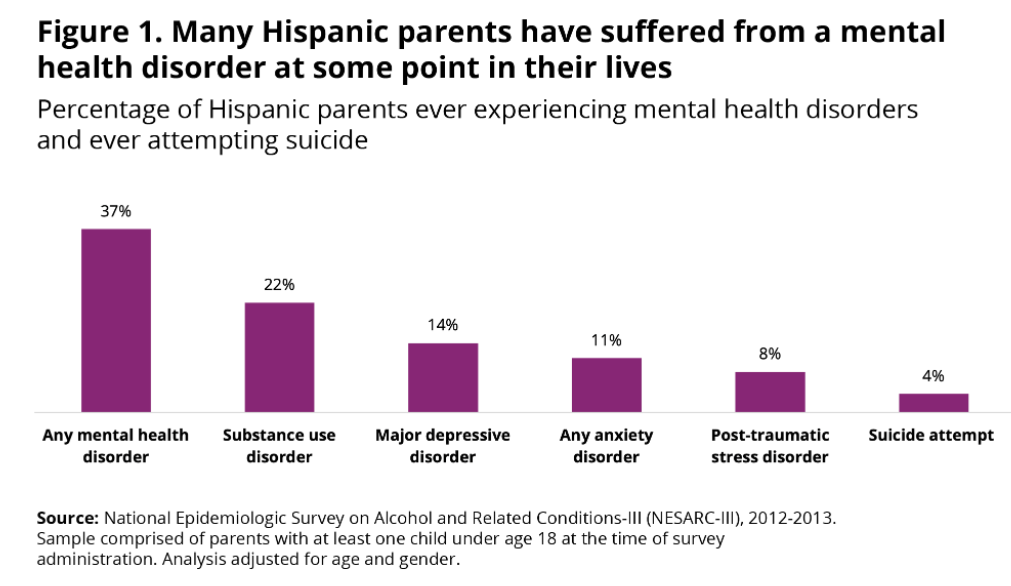
Share On Social!
Migrating and resettling in a new country is a difficult process, marked with mental, emotional, and physical challenges, including potential family separation.
For Latino immigrants, challenges may continue even after resettlement in the US, including significant socioeconomic and healthcare access disadvantages.
Despite these hardships, studies show that Latino immigrants have better physical and mental health outcomes compared to their US-born counterparts.
This interesting phenomenon is known as the Latino Immigrant Paradox.
And the paradox applies to parents, too, according to a new report.
Latino immigrant parents have a lower prevalence of mental health disorders (29%) than Latino parents born in the United States (51%), according to a report by the National Research Center on Hispanic Children & Families.
How Does the Latino Immigrant Paradox Happen?
Given the challenges Latino immigrant parents may face before, during, and after resettlement in the US, how does their mental health fare better than US-born Latino parents?
The Latino Immigrant Paradox has a few possible explanations, according to Maria A. Ramos-Olazagasti, Ph.D., Senior Research Scientist at Child Trends.

- US-born Latino parents may lose touch with Latino cultural values that promote overall wellbeing, such as religiosity, familism, and respeto.
- Although Latino immigrant parents may feel the effects of structural racism and discrimination, US-born Latino parents may experience the effects of structural racism and discrimination on a deeper level, as effects have accumulated over multiple family generations.
- Latino immigrant parents may have a more positive mindset because they appreciate living in the US, especially if they are better off now than they were in their country of origin. In comparison, US-born Latino parents may compare themselves to peers and experience more social pressures to “fit in,” sometimes leading to feelings of inadequacy or unhappiness.
- Another explanation refers to Darwin’s “survival of the fittest” Latino immigrant parents who can endure the challenges of migration are more likely to be healthy and prevail through hardships. As a result, they can be both mentally and physically healthier than US-born Latino parents who have not faced the hardships of immigration.
Exploring how the Latino Immigrant Paradox impacts Latino parent mental health is important because parents have multiple household roles that impact the health of others, including children.
“Parents’ mental health can affect multiple aspects of family life, including their ability to secure and maintain employment and provide financially for their family, the health and stability of couples’ relationships, and the quality of parent-child interactions,” according to the report.
The Latino Mental Health Crisis
Regardless of immigration status, Latinos living in the US still experience disparities when it comes to mental health issues.
The same report found that over one third (37%) of Latino parents (US and foreign-born) have experienced a mental health disorder—depression, anxiety, substance use disorder, or PTSD—at some point in their lives.
 Additionally, college-age Latinos and Latino youth face mental health struggles, which have worsened with the COVID-19 pandemic.
Additionally, college-age Latinos and Latino youth face mental health struggles, which have worsened with the COVID-19 pandemic.
While Latinos report less mental health problems than their White counterparts, Latinos face significant barriers to accessing mental health services, including mental health stigma and structural barriers, such as the lack of finances, insurance, and bilingual and culturally relevant mental health resources.
According to a study by the National Institute on Minority Health and Health Disparities, these barriers may contribute to Latinos being more likely to:
- Not receive treatment for mental disorders compared to Black or white people
- Report that they do not need treatment compared to Black or white people
- Drop out of their mental health treatments compared to Black or white people
“People tend to associate mental health with cosa de locos, I’m crazy, or there’s something wrong with me. It’s so important to normalize the experience,” said Dr. Luz Garcini, psychologist and epidemiologist at UT Health San Antonio
How Can We Reduce Barriers to Mental Health Treatment?
The National Alliance on Mental Health (NAMH) offers Latinos tips on seeking mental health treatment either through a mental health professional or a primary care provider. The tips include navigating language barriers, finances, and determining the best provider for you.
NAMH’s three-part video series offers more information on mental wellness in the Latino community.
You can help reduce the mental health stigma among Latinos by speaking out and encouraging others to seek bilingual and culturally relevant mental health resources.
For example, these bilingual materials from National Institute of Mental Health (NIMH) can help Latinos learn about mental health treatment.
You can also use our Handle With Care Action Pack to help reduce mental health trauma in Latino youth.
By The Numbers
142
Percent
Expected rise in Latino cancer cases in coming years




I know this is a two year old article, but Bias is another reason why some Hispanic people think about or attempt suicide. I’m actually part Filipino, German and English and I ended up looking stereotypically Hispanic and my surname is Spanish due to my Filipino side since the Spanish colonized the Philippines. I’m a woman though and I’ve thought about it for a number of reasons involving my health from a rare disorder that caused learning issues and also I have obvious cancer symptoms Ive tried getting help with. I’ve also been treated poorly and sometimes in very scary situations because of obvious Bias and Prejudice due to my appearance. I’m just saying Bias against people who are Hispanic and “look Hispanic” is a real thing. I apologize if it was in this article but I didn’t notice it, But I do apologize if its in there. I just think it needs to be addressed more. Thank You